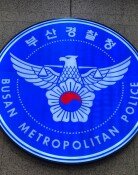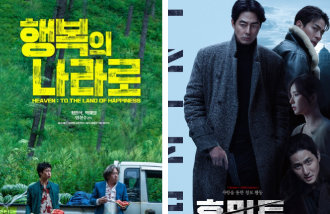Geniuses

Ki Dae-seung was sauntering around with his pupils. When they reached a place with a splendid view, a pupil asked, is there any great man whose personality can be compared to this view? Jeong Cheol is such a man, Ki answered. (Songgang Haengrok)
Songgang Jeong Cheol was both a rare man of literature and the worst politician in the Joseon Dynasty. Although Ki Dae-seung, his teacher, did not see his faults buried under his extraordinary talents, his enemies called him, butcher of the east (the political factions at that time were divided into east and west); sly Cheol; or poisonous Cheol.
Jeong Cheol was a man with two sides. On one side, he was a poet who wrote immortal masterpieces in Chinese and Korean. On the other hand, his name was stained with his incomprehensible deeds as a politician in the midst of power struggle in the latter half of the 16th Century.
This book is a collection of biographies of geniuses in Korean history. It includes 13 geniuses who discerned a future path and tried to go beyond the common sense of their times with their extraordinary talents. Three historians, Lee Deok-il, Shin Jeong-il, and Kim Byeong-gi, who are leading the way to the popularization of history, worked together to correct the unbalanced menu of Korean history.
Jinul, who laid a foundation for the innovation of Buddhism by combining Zen Buddhism and non-Zen Buddhism; Jang Yeong-sil, who was a slave in government employ but invented a clock to tell Joseon the most precise time in the world; Yu Deuk-gong who expanded the historical stage of our nation to include Goguryeo and Balhae: all of these historical figures were geniuses who went beyond the limitations of their times.
Lee Sang-seol who died in a foreign land after his dedication of all his talents to the independence movement; Lee Byeok who died after fasting as a protest against pressure to discard his Catholicism; Maecheon Hwang Hyeon, who killed himself as he took on the responsibility of losing our country to Japan: these were geniuses who embraced the fetters of their times to themselves.
The book also reveals the light and shade of these geniuses lives.
Jeong Cheol hankered for power throughout his life. He was straightforward and had a hot temperament. He said what he had to say and did not hesitate to attack the opposing side in political power struggles.
He opened the age of a 300-year power struggle between the East and West factions in the Joseon Dynasty and took part in purging a thousand men on his opposing side as the leader of the West action group when the Jeong Yeo-rip Rebellion was put down. Joseon Sillok records that he made up evidence as he handled the case drunk.
On the other hand, Jeong Cheols literary accomplishments are unmatchable even these days. He created excellent poems in the middle of a muddy and bloody power struggle. His Samiingok and Sokmiingok are evaluated as the peak of Korean literature.
If we think of his splendid accomplishments in Korean poetry, we cannot see him as a politician. If we think of his political career soaked in blood, we cannot see him as a poet.
Lee Gyu-bo, a Goryeo man of literature who was said to write a poem with a running pen by writing 8,000 poems throughout his life, was also far from the paragon of a scholar. After spending a long time as a minor official and complaining about the times for his circumstances, Lee grabbed an opportunity to rise in the world and gain fame as military men came to power. He was a government-patronized man of literature selected by the power regime of Choi family. However, his literary talent was used to benefit the world regardless of his intentions. Dongmyeongwang Pyeon, his epic poem, is regarded as the best of Goryeo poetry.
Lee Ga-hwan was a genius whose talent was praised by Jeong Yak-yong; Jeong thought Yi was not a man, but a demon-master. To save his life against Norons (a political faction) accusation of him as a Catholic, however, Lee sacrificed his Catholic brothers and was executed himself at the end.
It was the same with Jeong Cheol. His last years were depressing. He died in poverty and with grudges.
After he died, Saheonbu (Joseon prosecution) reported, He was impetuous and envious, and enjoyed harming and hurting people with his snake-like heart.
King Seonjo answered, Im afraid to foul my mouth with his name.
Gi-U Lee keywoo@donga.com







